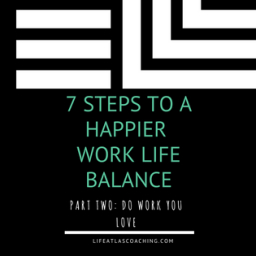
Stress. It’s a feature of so many of our lives – whether it’s work-related, anxiety-based, driven by financial or relationship difficulties or work life balance centred. And when you’re feeling stressed, it’s natural to want to find ways to reduce your stress level quickly.
There is no doubting the physical toll stress takes on our bodies, never mind the emotional impact that stress has on our minds. Great careers have been lost to it, relationships, families and friendships break down in the middle of it, businesses are given up in the throws of it, and many nights are sleepless because of it.
Overcoming chronic (long-term) stress requires making both practical and mindset changes, and achieving these changes takes time –not least to get the clarity needed to know what actually needs to change and the bravery required to make those changes. Achieving this reduction in stress for the long-term is ultimately about working out how you can follow all the well-researched and logical advice – to learn to say no, to create boundaries, to make lifestyle changes, to get more sleep (easier said than done when it’s the stress and anxiety that’s keeping you awake in the first place!), to stop being so hard on yourself, to learn to manage your time better, to prioritise better. I know from first-hand experience that reading these tips when you’re stressed can be really frustrating – if it was that easy, you’d already be doing it, right!?
So this blog is not about how to go about making those big changes. (If you are struggling with long-term stress and want to make some of those bigger changes that reduce your stress significantly and in a long-lasting way, then pick up the phone and have a conversation with me about how I can help you do that through coaching).
But, if you are going through a stressful period at work or in your life, if you regularly find yourself feeling overwhelmed or if you struggle with over-thinking that leaves you with a constant low-level feeling of anxious stress, there are a number of simple things you can do to reduce your stress level quickly.
This week. Today. Even if you’ve only got a few minutes.
And that is what this blog post is about. These ten tips are aimed at helping you reduce your stress level quickly. They are all things that are grounded in evidenced-based psychology or science, and are all things that at least one coaching client I’ve worked with on their stress has reported to have made a big difference to them. They may not be a cure for your stress, but they can reduce the severity of the stress you are feeling and can help you gain the head-space you need to be able to let go of the stress – for short periods of time at least – giving your overwhelmed brain a break.
Learn and Use a Grounding Technique
When your brain is full, and you find yourself overthinking or worrying about things, you are almost certainly either thinking and worrying about past events (which you can’t change) or about what might happen in future .
Give your brain a break, and come back to the present. Which is, after all, the only time and place over which you have control right now. Grounding yourself in the present helps you re-set your focus to the here and now.
A personal favourite which I introduce to many clients, is the “54321” senses technique. When you notice your thoughts wandering anxiously into a different time-zone, Try this:
- What are five things you can see?
- What are four things you can touch?
- What are three things you can hear?
- What are two things you can smell?
- What is one thing you can taste?

There’s been a wealth of research into the positive psychology of gratitude, or the art of being grateful. Proven benefits include greater resilience, higher self esteem, and a plethora of positive impacts on emotional well-being including increased happiness and reduced resentment and frustration. A 2011 study published in Applied Psychology: Health and Wellbeing even showed that people who wrote a nightly gratitude journal slept better.
Here’s how to do it: Take five minutes before going to bed to write down something good that happened during the day, and three things you’re grateful for.
In addition to the benefits mentioned above, doing this during times of stress helps you focus for a while on the things in your life that you love, that make you happy and that are going well. Remembering each night that not everything is stressful, difficult or troublesome allows you to find a little more balance in the way you are thinking about life and can help you get more helpful sense of perspective.
When your brain is overwhelmed with things to do, if you find it difficult to let go of work worries once you get home or you are finding yourself preoccupied with thinking about the things that are causing you stress, a good way of switching off is to find something else you can focus on completely for a period of time.
You’re looking for something you enjoy, that you can become absorbed in and that needs your full attention. It might be reading a book (for pleasure), playing a musical instrument, doing some colouring or painting or, if you’re into puzzles, doing a crossword, sudoku or jigsaw. It might be playing a sport, or doing some gardening.
The key to this is in the focus rather than what the activity is , so use your imagination – maybe even use it as a good reason to try learning something new!
In a life full of stress and constant juggling, being able to take ten or fifteen minutes to stop and really savour one of life’s simple pleasures can give your brain a significant endorphin boost and give the restless, anxious, emotionally-driven part of your brain some respite.
Take a few minutes to make a list of the things you enjoy and then make an effort to build them into your day and to deliberately enjoy doing them.
For me, it’s as simple as savouring a cup of really good coffee or spending ten minutes sitting in my garden, taking in the view and listening to the sounds of the countryside.
It could just as easily be listening to a favourite podcast, taking the dog for a walk, or talking to a friend on the phone – as long as you enjoy it, it’s worth doing.

The International Stress Management Association (ISMA) concluded, in a recent study, that “connectedness” through social media and emails, was a significant cause of stress. Almost half of people in the study found switching off their phone to be liberating.
If work is seeping into your life at every imaginable moment, and that’s the source of your stress, one of the easiest ways to start to create a boundary between the two is to have separate phones for work and the rest of your life.
A separate phone won’t necessarily stop you thinking about work, but it makes the choice to stop receiving (and replying) to work emails or work related texts outside working hours an easier one. And when you know you won’t receive any work messages, it’s much easier to relax.
If the thought of not being able to receive or answer a work message during the evening or weekend fills you with anxiety, start small. Switch the work phone off for just half an hour a night to begin with. Once you start feeling comfortable with that, extend the time you switch work off to an hour, until you feel comfortable switching it off for the whole evening. And if you’ve been in the habit of replying to things late at night, you might find it easier if you let colleagues or customers know that you are only going to be available during work hours from now on – anyone reasonable won’t find that unreasonable!
When we breathe deeply, we take more oxygen into our lungs, which means we oxygenate our blood more effectively, reducing the cortisol (stress hormone) at the same time.
My favourite breathing technique is one that I learned when I first trained to become a coach, and is one that I’ve taught scores of clients since then. It is very simple: sitting quietly, breathe in through your nose for the count of 7, and then out again through your mouth for the count of 11, and repeat for a minute or two.
Don’t count too slowly or you’ll run out of breath!!!
No extra time needed for this tip at all – you can do it while you’re taking your morning (or evening) shower.
Why does singing in the shower help you reduce stress? Well, like deep breathing, it helps you take in more oxygen with all the benefits that brings. Singing something you enjoy will also help release endorphins and oxytocin – the happy hormones. And, while you are singing, you are focusing on doing that, rather than thinking about the things that are causing you stress.

Laughter makes our brain release endorphins and reduces cortisol – it also helps relax your muscles, which can feel tense as a result of your stress. Our brain knows we’re safe when we’re laughing, because we wouldn’t be chuckling if we were in danger, would we? And if we’re safe, our brain doesn’t need to release the stress hormones to get us ready to fight or flee.
Yet our brain isn’t smart enough to know the difference between real giggles and fake laughter. So however you’re feeling, ten minutes of laughter – even if it’s not real – will have the same physiological and neurological effect as real laughter.
If you drive to work, try laughing the first or last ten minutes of your commute, and arriving at work feeling lighter and less stressed.
If your brain feels full of worries and stresses that are overwhelming you, clearing some head-space to allow you to think clearly, focus on other things and enjoy your day – without worrying you will forget to do something about the things that are worrying you – is vital.
Your worry box can be real (find yourself a box of any kind) or it can be a box based in your imagination. If you’re going to have an imaginary worry box, start now by imagining what it looks like – something big, colourful and lockable is ideal!
Now, make a list of everything that is worrying you or causing you stress.
If you’ve got a real box, write these down on post-it notes and put them physically in the box, before putting the box away out of sight. If you’ve imagined your box, write them in a list on a notepad, and then visualise yourself putting that notepad in the box, before visualising putting the box in another room.
Each day, give yourself twenty minutes to indulge your worries. Get out your worry box (or notepad), choose one or two worries to think about, and think of a positive, practical step you can take today, or soon, that will help you do something about whatever is worrying you, to start to make it smaller. Write that step down on your to do list – and then focus on doing that one step, rather than focussing on the worry as a whole.
If new things start to cause you stress or you develop new worries, add them into your box. And once you find there’s a worry in your box that isn’t worrying you any more, throw it away.
Virtually any kind of exercise is good for stress because it releases endorphins.
Walking is easy, can be done anywhere at any time, and doesn’t require any specific equipment. Walk mindfully – making an effort to take in the things you see, smell and hear along the way, and you will take your mind away from your stresses too.
Getting outside during the late morning is also associated with helping the release of melatonin at the right time of the evening to optimise sleep. And good sleep is vital for keeping your stress levels at bay for a number of reasons, not least that REM sleep is crucial for keeping cortisol levels at bay.
If you want to get really scientific about it, scientists have found that 13.9 degrees is the optimum temperature for feeling happy in – so at this time of year (November) you stand a better than average chance of getting the best possible benefit from a lunchtime walk!
I’m Jo Lee, the No Stress Success Coach. I coach career professionals and business owners to achieve the personal success they want and to reduce stress so they go from burn out to balance.
I offer face to face stress management coaching and work life balance coaching in Derbyshire, Leicestershire, Staffordshire and Birmingham and telephone or online coaching across the UK. If anything in this blog post resonates with you, and you’d like to find out more about how coaching works or what coaching with me might be like, please get in touch for an informal chat or to arrange a free initial consultation.





[…] You’ll find some more tips to lower your stress quickly over the festive period in this blog post. […]